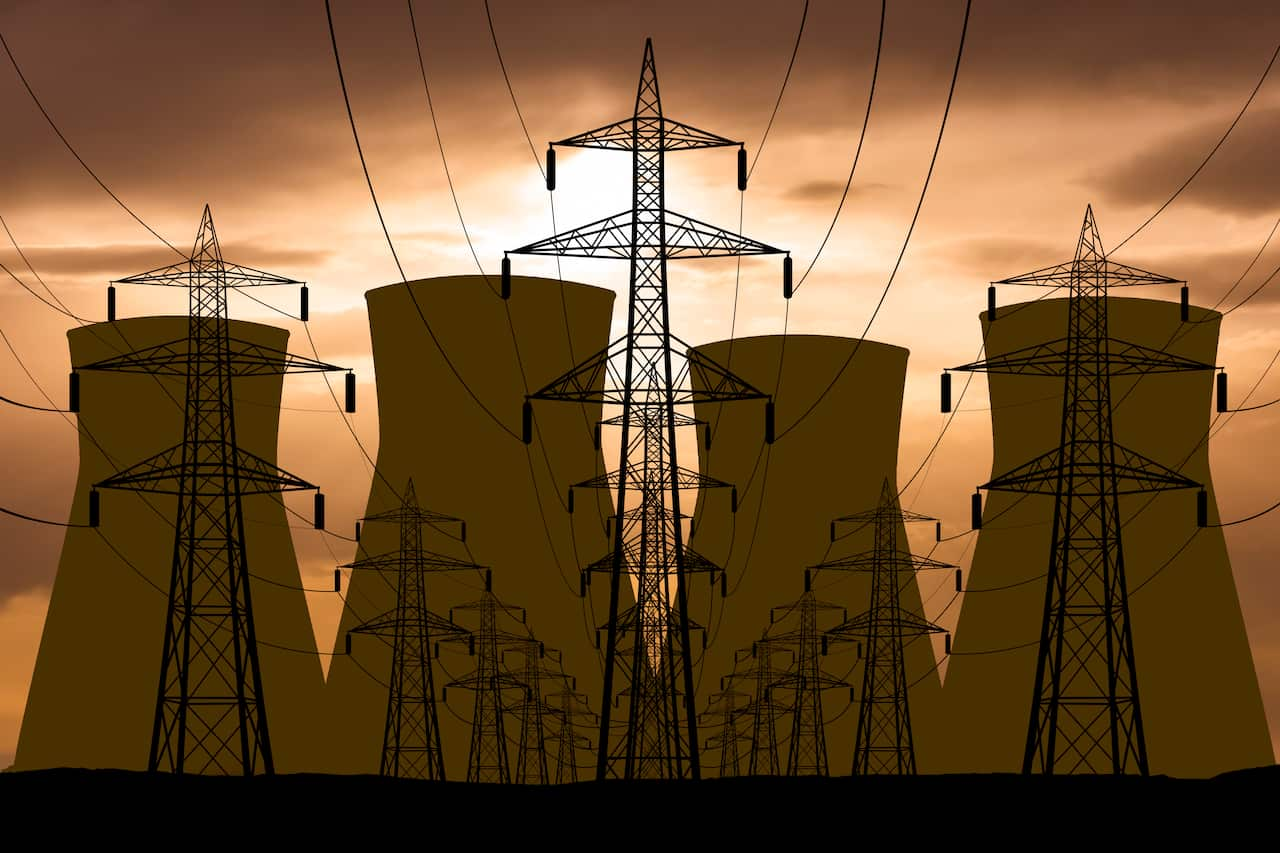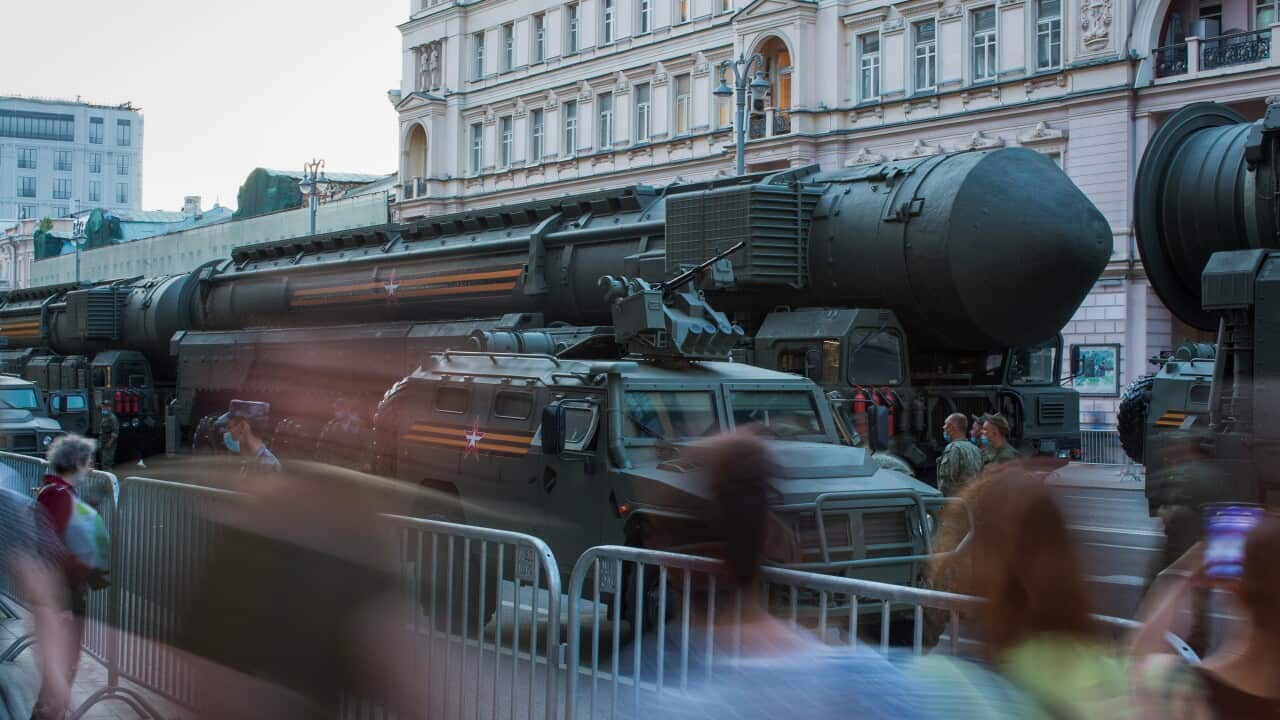Rising tension in the Middle East and South Asia has heightened fears of a war between nuclear-armed nations, something that threatens human existence, an Australian academic says.
A rise in nuclear posturing and rhetoric in recent years has also prompted renewed calls for international safeguards to prevent accidental or unauthorised nuclear launches.
A new study conducted by professor Emily Crawford from the University of Sydney Law School warns urgent action is needed to address the growing risks posed by nuclear weapons.
"Increasing political tensions in declared and non-declared nuclear states have brought back into sharp focus the need to better regulate nuclear weapons," she said.
The study highlights a combination of ageing nuclear infrastructure, emerging AI capabilities, and a lack of global cooperation as key factors creating what it describes as an "unstable and dangerous landscape".
So how do nuclear systems operate — and is an accidental launch actually possible?
Who can launch a nuclear weapon — and how it happens
Countries possessing nuclear weapons use NC3 systems, which stand for nuclear command, control and communications, Crawford explained.
She said the NC3 systems are the central nervous system of a state's nuclear weapons program, which includes the people, policies, and technologies responsible for nuclear decision-making.
"It's the framework that governs the process that, as its ultimate end product, results in the launch of a nuclear weapon — so it's a phrase that encompasses the entire chain from when a decision is made to launch a nuclear weapon to the actual launch of such a weapon," she said.
NC3 also includes the maintenance of nuclear systems, ensuring that planning and execution are conducted according to stated doctrine and policy.
Different countries have varying approaches to their NC3 systems, meaning the threshold for when a nuclear weapon could be launched is not universal.
In many countries, the NC3 infrastructure is ageing, which can pose a security risk to the entire world.
"There is currently no binding international legal standard that governs how nuclear-armed states design or operate their NC3 systems," Crawford said.
"This gap in governance poses a real risk to global security — and it's only growing."
What could go wrong?
NC3 frameworks are designed to prevent accidental or unlawful launches, but Crawford warned they are increasingly under strain.
In many countries, the NC3 infrastructure is outdated, with some hardware dating back several decades.
She said these legacy systems are often poorly suited to handle modern threats, especially those involving cyberattacks or AI.
"In a world where AI tools can mimic official communications and cyber incursions can scramble critical infrastructure, the possibility of a false alarm triggering an escalation is no longer far-fetched," Crawford said.
In such a high-stakes environment, even a single NC3 failure could lead to catastrophic consequences.
Crawford said in 2025, there have been growing concerns around disinformation and hacking campaigns targeting early warning systems.
A code of conduct
Crawford's study calls for an international code of conduct that countries could adopt to establish a universal approach to nuclear systems.
"A commitment to ensuring that there is an accountable chain of command involved in any nuclear weapons launch decisions, a commitment to the concept that the decision to launch a weapon should never lie with just one person, to keep AI out of nuclear launch decisions, and a commitment to 'no first strike'— that nuclear weapons would never be used offensively by a party who were not themselves subject to a nuclear attack," she said.
This could be modelled off a similar framework, like the Missile Technology Control Regime — an initiative of the G7 member states from the 1980s to limit the risks of proliferation of weapons of mass destruction.

Crawford believes such a framework could be successful, as many states have already adopted most of the rules she outlined in her study.
"Because of the potentially devastating impacts of an accidental or unauthorised launch, most states have been very pragmatic about embracing guidelines that ensure that lines of communication remain open [such as nuclear hotlines] and that measures should exist to prevent unnecessary escalation of hostilities where nuclear weapons are in the mix," she said.
"The US, UK and China have stated their commitment to not use nuclear weapons against non-nuclear weapons states or nuclear-weapons free zones; China adopts a 'no first use' policy, as does India; France adopts the two-person rule."
But she acknowledged not all countries would support universal guidelines, as political differences may lead some to reject certain rules.
For the latest from SBS News, download our app and subscribe to our newsletter.

